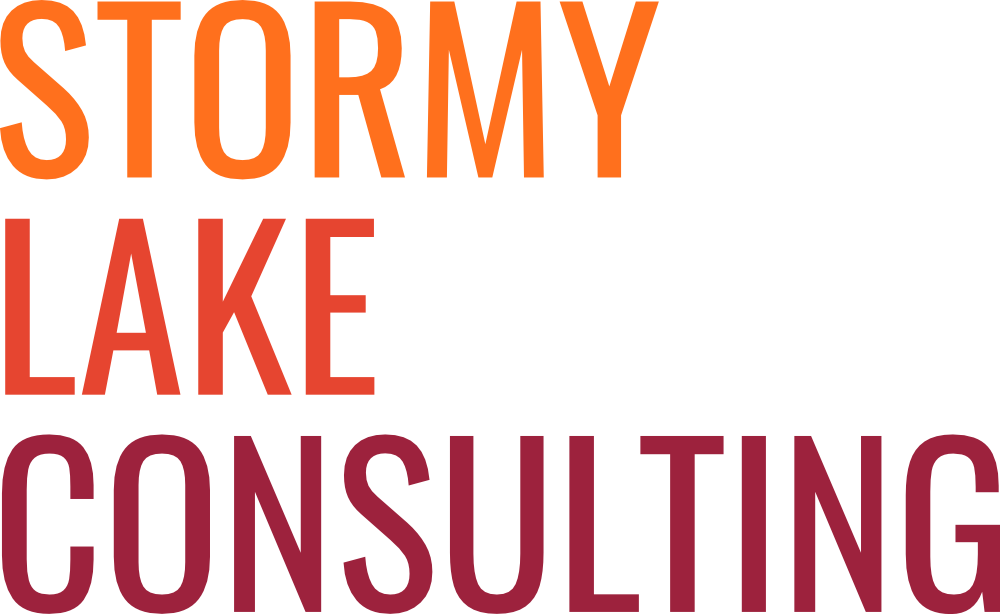The Weekly Update: Anniversary Edition
This week Stormy Lake celebrates its 18th anniversary. Echoes of 2002 still resonate today:
The SARS epidemic started in China in 2002, before arriving in Toronto in early 2003.
The Senate recommended the legalization of marijuana. Which in the typically reckless pace of Canadian legislation, did not happen until 2018.
Canada won gold in men’s and women’s ice hockey after going 50 years without a gold medal in either. Hockey stubbornly remains part of our national identity.
Clara Hughes became a sports cross-over sensation winning bronze in speed skating after winning medals in the summer games for cycling. Clara remains a hugely inspiring and effective mental health advocate.
Anniversaries are curious things. More than a milestone, they are a chance to reflect, a moment to connect and a time to look towards the future. To make anniversaries meaningful, we often fill them with ritual.
A ritual is any action we take that has meaning beyond its appearance. It has rigidity, formality and repetition. Dinner can simply be the fulfillment of a biological need for nutrition, or it can be a way for a family to feel united.
Nick Hobson, a neuroscientist from the University of Toronto, has shown that rituals are hugely powerful aspects of our brains, because humans generally have two modes of thinking: instrumental thinking and ritualistic thinking.
Instrumental thinking is when we do things rationally and related to goals. Think: I want to finish that project on time. Ritualistic thinking, on the other hand, is when we do something that doesn’t make any logical sense, but on some level our brains have evolved to know that it's still important — or even vitally important.
In a November 2017 article in Personality and Social Psychology Review, Hobson and his co-authors arrived at a concise, three-part definition of rituals:
There must be a so-called ritual script.
The action must be more meaningful than a routine or habit. It must be “embedded in a larger system of symbolism and meaning.”
It must have some irrationality associated with it, or “lack instrumental purpose.”
Let’s test this out. We have a colleague, we’ll call him “Felipe”, who has been judged by others as having a bit of a coffee problem. Is it a ritual or a habit?
Script - Felipe makes it the same way, at the same time every day. Check.
Meaning – It is part of his identity as a non-Diet Coke drinking corporate drone (longer story). Check.
Irrationality – hmmm. Caffeine delivery system. The process of making it is emotionally comforting. Gets a vicious headache if it is missed. Damn. Looks more like an addiction than a ritual.
Felipe is disappointed.
Nearly 70% of workers have reported increased stress since the arrival of COVID-19. The traditional stressors of workload, deadlines and interpersonal relationships have been compounded by worries about our own health and our loved ones, concerns about finances and job security and disruptions to sleep and eating patterns.
(The preferred coping tool for stress is … caffeine. But it also contributes to the stress.)
Rituals can be very powerful tools to reduce stress in the workplace, even very small rituals. In a fascinating experiment, Francesca Gino and Michael Norton from Harvard Business School had people conduct a ritual before preforming on stage in a karaoke bar. Specifically, clapping their hands or snapping their fingers. Even with this small act, stress levels decreased dramatically.
The sports world is full of odd (and effective?) rituals:
While his opponent was lining up their penalty shot, Argentinian goalkeeper Sergio Goycochea would pee his pants. Yes, on purpose. Before every single penalty kick to calm his nerves.
Tennis great Serena Williams wears the same pair of socks throughout a single tournament run without washing them. One hopes she just throws them out afterwards.
New Zealand's national rugby team credits much of their success to the rituals that form the bedrock of their culture. After each match—win or lose, home or away—everyone on the team cleans the dressing room until it’s spotless.
Research shows 90% of top performers are skilled at managing their emotions in times of stress to remain calm and in control. Rituals can play an important part of managing our stress.
What rituals can you bring to your own work and that of your team? Something fun that has little direct relationship to your work. It could be a weekly lunch – Fast Food Fridays – or a trophy for “mistake of the week” that people proudly display on their desk.
Part of the anniversary ritual is the giving of a traditional gift. Paper for one, silver for 25, gold for 60, etc. One of the modern suggestions for an 18th anniversary is an appliance (think: espresso machine). Or you could add two numbers together like 7 (copper) and 11 (steel) to get something like this:
And if it is just the thought that counts, perhaps 18 pieces of paper:
Thank you to all our wonderful clients with interesting challenges over the years. To our amazing partners. To our treasured alumni (Mike, Eddie) and our inspiring team (Charlie, Nicole, Stephanie, Bob, Jason, Kayla, Karen and Felipe).
Now go snap your fingers before breaking out the karaoke machine to start your next quarterly meeting.



